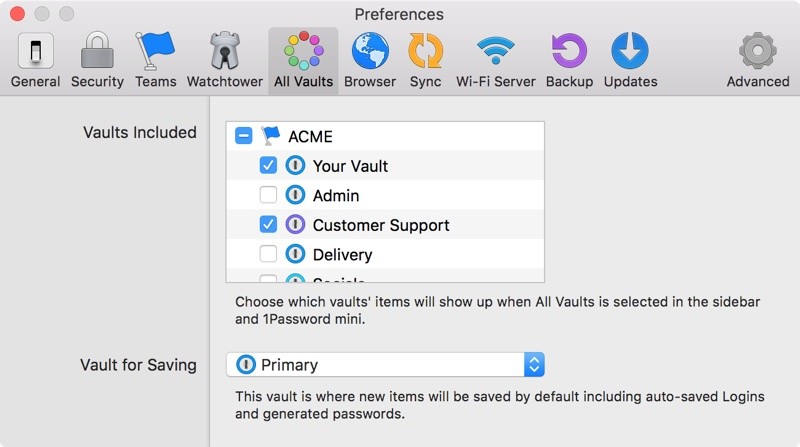

- 1PASSWORD X COMPARE 1PASSWORD 7 SOFTWARE
- 1PASSWORD X COMPARE 1PASSWORD 7 PASSWORD
- 1PASSWORD X COMPARE 1PASSWORD 7 CRACK
Complexity is often seen as an important aspect of a secure password.
1PASSWORD X COMPARE 1PASSWORD 7 PASSWORD
Best Passwords?Ĭonsiderations on password length and complexity are key in the quest for the ideal password. The problem is that a good number of organizations rely solely on a password-based authentication and have not opted for more secure authentication systems (e.g., PKI-based, OTP-based, or context-based authentication, or else biometric-enabled identifiers). The evolution in password cracking continues and having weak passwords can only make the hackers’ job even simpler.Īccording to the 2015 annual public sector information security survey, a report by i-Sprint Innovations and eGov Innovation, “Weak authentication security is the leading cause of data breaches, accounting for 76% of compromised records.” In addition, the Enterprise Innovation study notes that ‘simple password-based authentication’ is not an adequate means of protecting all this precious data. The phrase ‘security is only as strong as the weakest link’ highlights the importance of the role of users within the security chain and the need to train and help them choose passkeys that protect assets and data efficiently.
1PASSWORD X COMPARE 1PASSWORD 7 SOFTWARE
Of the security incidents reported to the CERT Division of the Software Engineering Institute (SEI) related to poorly chosen passwords, a great percentage is caused by human error.
1PASSWORD X COMPARE 1PASSWORD 7 CRACK
It is important to create keys that strike the right balance between being easy to remember and hard for others (intruders or impostors) to guess, crack or hack. Weak and insecure passwords are a security concern and a gateway to breaches that can affect more than just the targeted users. With too many keywords to remember, people often choose weaker passwords that are less secure, online and offline. Writing down passwords, re-using the same one for all systems, using easy-to-remember words or phrases or creating shorter access keys are problems that are a direct consequence of the overload of passwords we are all ask to use on a regular basis. Today, every system, device, account we need daily has its own password-creation rules, and it is becoming difficult (maybe impossible) to keep track of all access keys. Let’s face it, most users tend to create terrible passwords and seldom change them. Both have pros and cons as well as their own supporters. complexity issue divides experts and users. The debate is always open, and the length vs. Password-protected systems or collection of data (think bank accounts, social networks, and e-mail systems) are probed daily and are subject to frequent attacks carried forward not only through phishing and social engineering methods, but also by means of passwords cracking tools. The strength of a password is seen as a function of how complex and/or long it is but, what matters most, size or complexity?Īny systems, regardless of which method is used for identification and/or authentication is susceptible to hacking. Through time, requirements have evolved and, nowadays, most systems’ password must consist of a lengthy set of characters often including numbers, special characters and a combination of upper and lower cases. In essence, they are part of our everyday lives. When it comes to user authentication, the password is, and has been, the most used mechanism passwords are used to access computers, mobile devices, networks or operating systems.


 0 kommentar(er)
0 kommentar(er)
